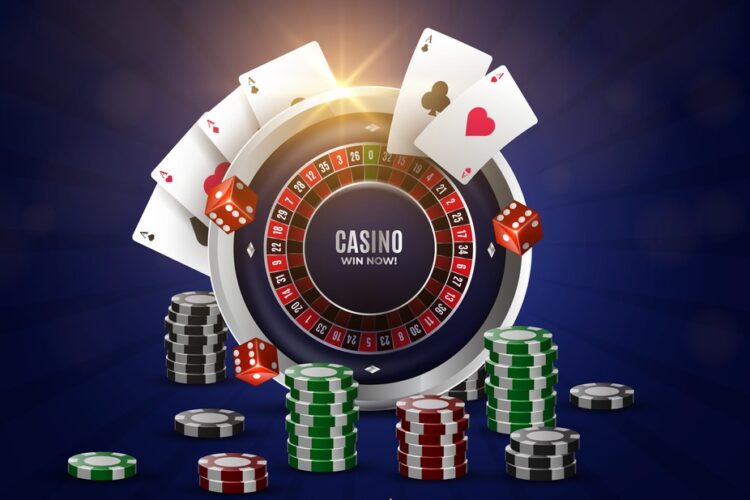When entering a casino, one must be aware of the presence of the house edge, a fundamental concept that influences the outcomes of various games. The house edge plays a significant role in determining the odds and potential returns for players, affecting their overall gambling experience.
Being mindful of how the house edge impacts betting decisions can help individuals make more informed choices when engaging in casino games. Understanding this concept is essential for developing a strategic approach and managing expectations while participating in gambling activities.
It is important to consider the implications of the house edge before making any bets, as it can significantly influence the outcomes in the realm of casino gaming.
What Is House Edge?
House edge in gambling refers to the statistical advantage a casino holds over players in a specific game. It’s a predetermined profit margin designed to ensure casinos generate revenue over time. Understanding the house edge is essential for making informed betting decisions.
The level of house edge varies across different games, with some games offering more favorable odds to players than others. For instance, games like blackjack generally have a lower house edge compared to slot machines.
Factors Affecting House Edge
Examining the game rules and structure is essential to identify the key factors influencing the house edge in gambling. The number of decks in games like blackjack is a significant determinant, with a higher number of decks typically leading to an increased house edge. Rule variations, such as the dealer’s action on a soft 17, can also impact the house edge.
In roulette, the inclusion of a double zero in American Roulette elevates the house edge compared to European Roulette, which features only a single zero. Moreover, the paytables in video poker and slot machines are crucial factors in determining the house edge. Understanding these elements is essential for making well-informed betting choices.
Impact on Betting Strategies
Understanding the impact of the house edge on betting strategies is essential in making informed decisions. The house edge directly influences the probability of winning and the potential payouts in a game. When devising a betting strategy, it’s important to consider the house edge of the specific game being played.
Games with a higher house edge typically necessitate more cautious betting strategies to minimize potential losses. Conversely, games with a lower house edge may allow for more aggressive betting tactics. By being mindful of the house edge, players can adjust their strategies accordingly, balancing risk and reward.
Adapting strategies based on the house edge can enhance the overall effectiveness of betting approaches and improve long-term outcomes.
House Edge in Different Games
When evaluating various games offered in a casino, the house edge serves as a pivotal factor in assessing the odds and potential returns for players. Games like Blackjack, known for their strategic elements that can impact outcomes, typically maintain a lower house edge, averaging around 0.5%.
Conversely, games such as slots or Keno often exhibit significantly higher house edges, frequently surpassing 5%. This indicates that for every $100 wagered, the expected loss over time is approximately $0.50 in Blackjack compared to $5 or more in slots.
Understanding the varying house edges across different games enables players to make informed decisions regarding their bets, potentially enhancing their chances of leaving with winnings.
Maximizing Wins and Minimizing Losses
Understanding the house edge is essential for optimizing your outcomes in casino games. It’s advisable to assess the house edge of various games to make well-informed betting decisions. Games with lower house edges, such as blackjack and baccarat, are preferable over high house edge options like slots or keno.
Implementing strategies like effective bankroll management, setting limits for wins and losses, and knowing when to stop playing can aid in managing losses and increasing your chances of winning. While luck remains a factor in gambling, having knowledge of the house edge empowers you to make strategic betting choices for a more favorable gaming experience.
Conclusion
Understanding the concept of house edge is crucial for making informed betting decisions in casino games. By considering factors that influence the house edge and opting for games with lower advantages, you can improve your chances of winning while reducing potential losses. It is advisable to factor in the house edge when placing bets and develop strategies accordingly for better outcomes. Keep these considerations in mind to enhance your gaming experience.

